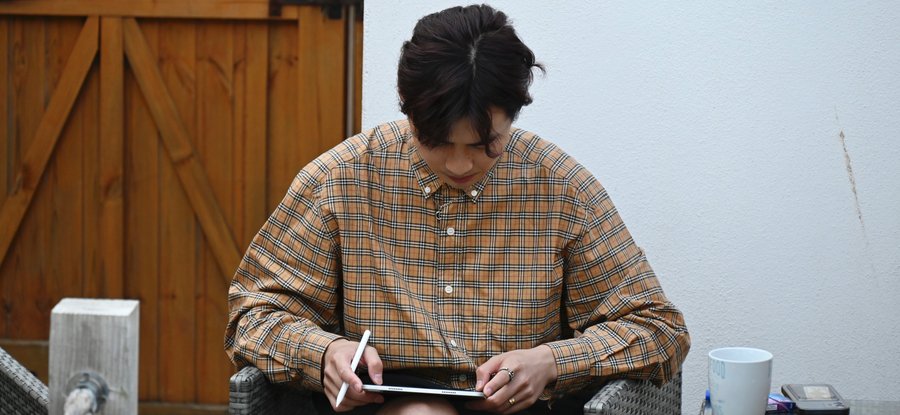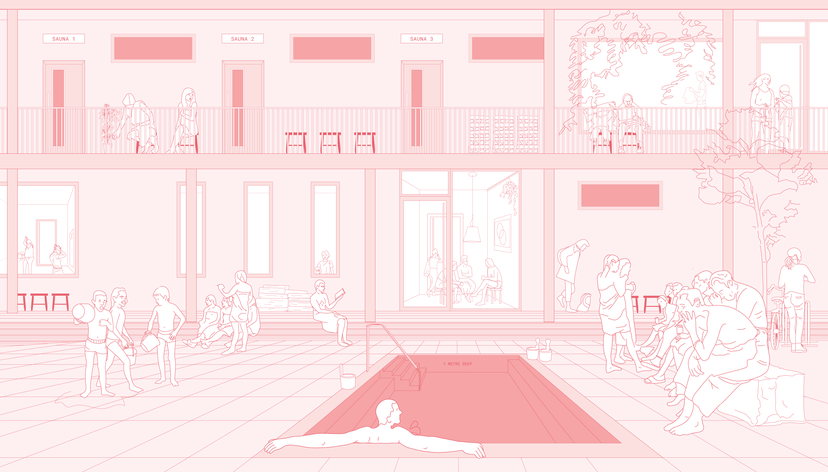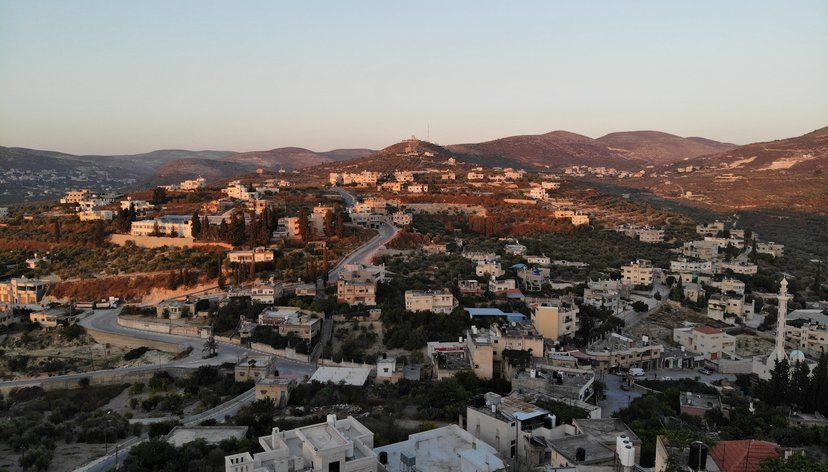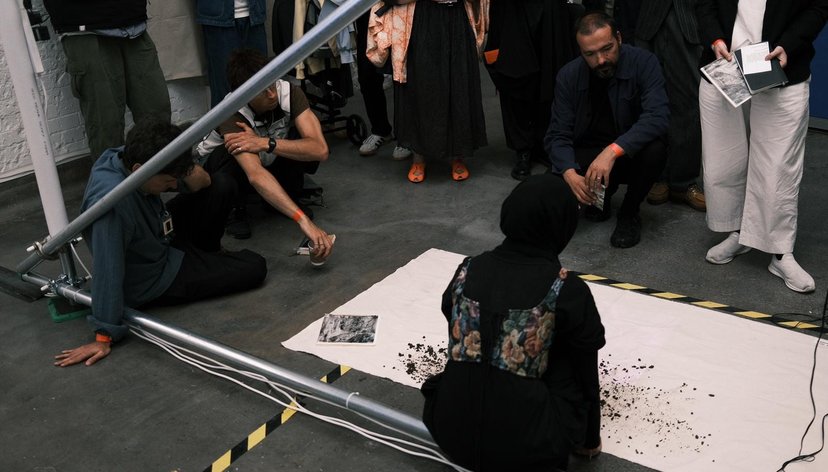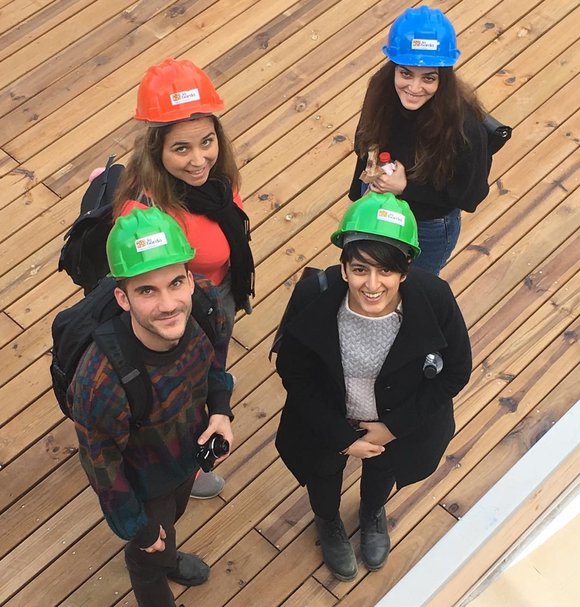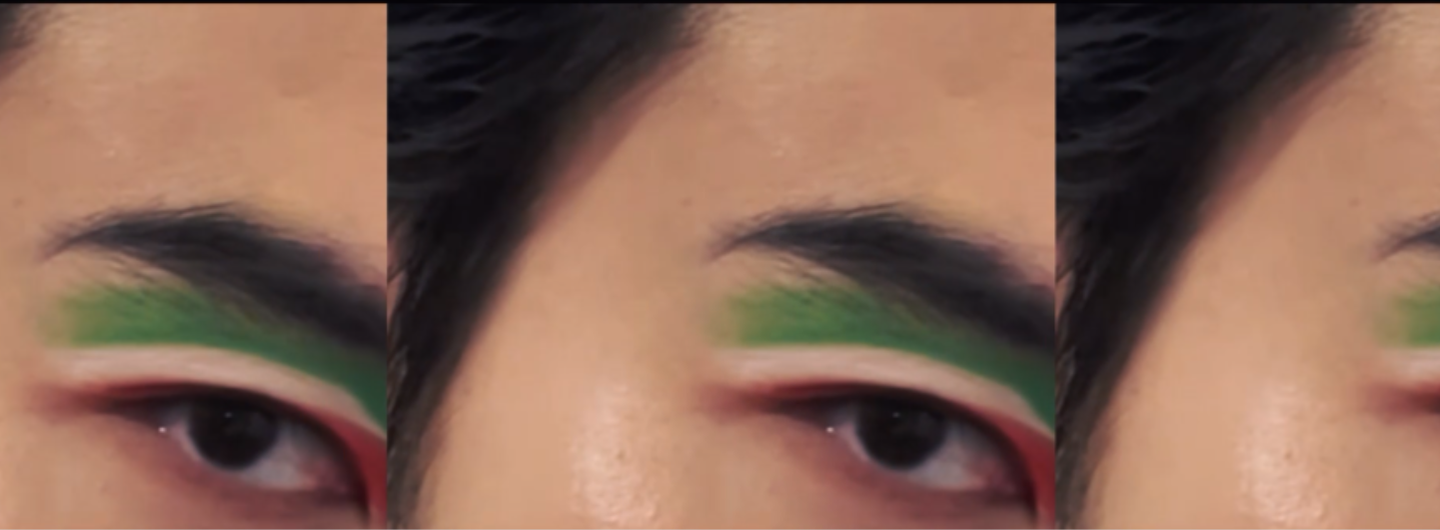
Key details
Date
- 9 October 2025
Read time
- 4 minutes
When Caspar Zhang (Xiayu) arrived at the RCA from Anhui, China, he not only found a new way of thinking about cities, but also a way to use design as a form of resistance and connection.
Where are you from, and what brought you to studying City Design at the RCA?
I’m from Anhui Province, China. I chose to study City Design at the RCA because I’m deeply interested in the social issues the programme engages with—particularly topics related to support for Palestine and the pursuit of spatial justice. The RCA’s interdisciplinary approach, emphasis on critical thinking, and strong commitment to social justice were key factors that attracted me to pursue my studies there.
How would you sum up your creative process in one sentence?
My creative process is a socially engaged practice that starts with digital research and develops into spatial responses addressing social issues.
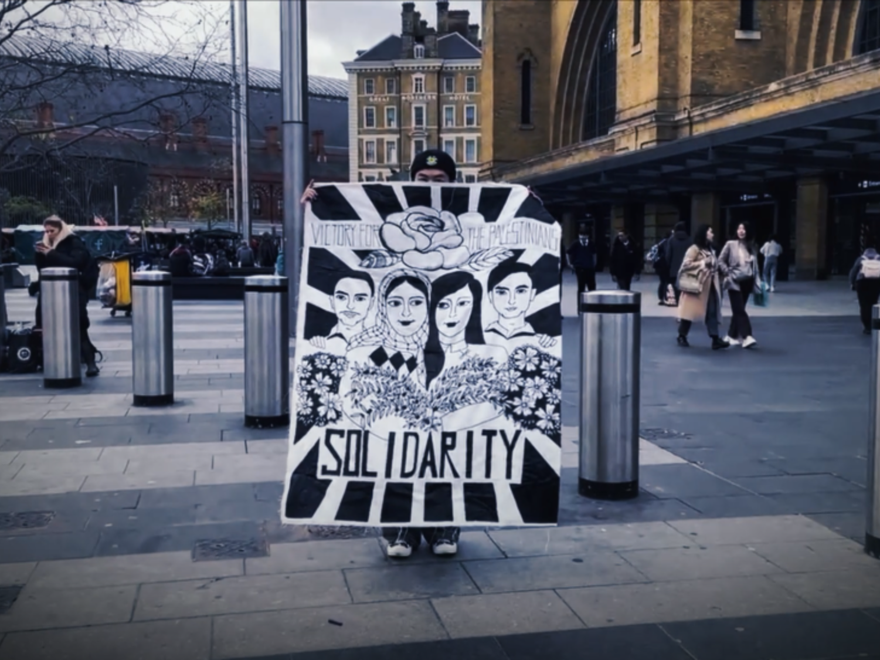
Banner of the China-Palestine Solidarity Studio, created by Caspar Zhang
How did you find coming to the RCA / to London to study for the first time?
At first, I found it a bit challenging to adapt to the RCA’s open and flexible teaching approach. But it taught me how to formulate my own questions and build a research framework independently. It also encouraged me to explore more diverse directions in my practice. This became one of the most valuable parts of my growth at the RCA.
Did you build good relationships with peers? How have these working relationships continued to benefit you throughout your career?
Throughout the programme, I formed meaningful collaborations with peers—not just on academic projects, but also around the social issues we all cared about. These connections became genuine friendships and have since helped me work more smoothly and thoughtfully with others in my professional life.
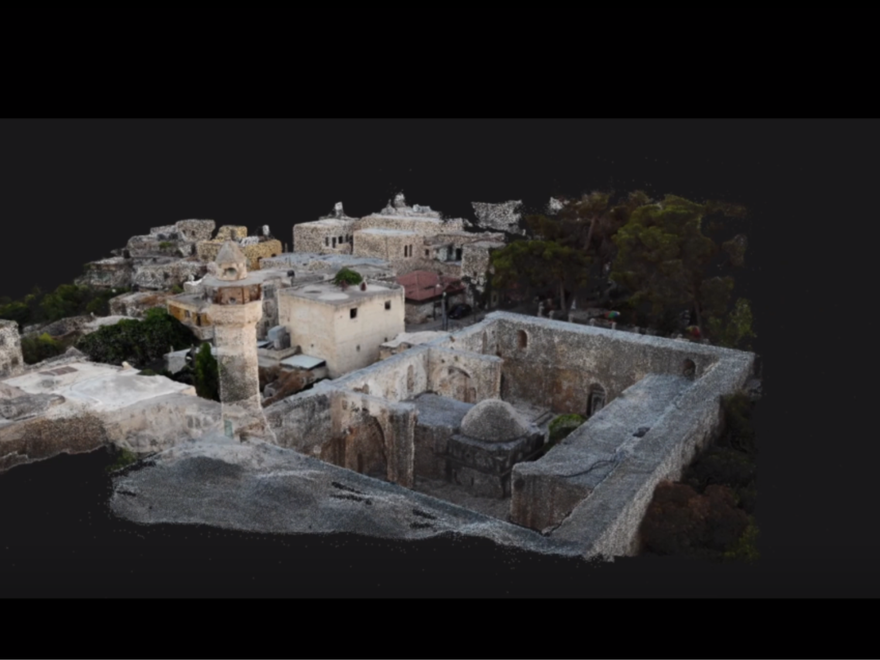
A 3D scan of a town in Palestine, by Caspar Zhang
Can you tell me about the Chinese & Palestinians solidarity studio (CPSS studio). What propelled you to establish this and how do you see it developing into the future?
CPSS Studio was founded during my time at the RCA, in collaboration with a Palestinian NGO leader and several young Chinese artists. Our aim was to create a platform for cross-cultural dialogue between China and Palestine. The studio focuses on issues such as spatial oppression, colonialism, and resistance.
How did your City Design MA at RCA feed into the creation of the CPSS studio?
The RCA’s curriculum encouraged us to re-examine urban space through the lens of equity and justice, which laid the theoretical foundation for the vision behind CPSS Studio. At the same time, feedback and support from tutors and peers continuously inspired us to turn critical thinking into concrete action, which played a key role in the studio’s creation and growth.
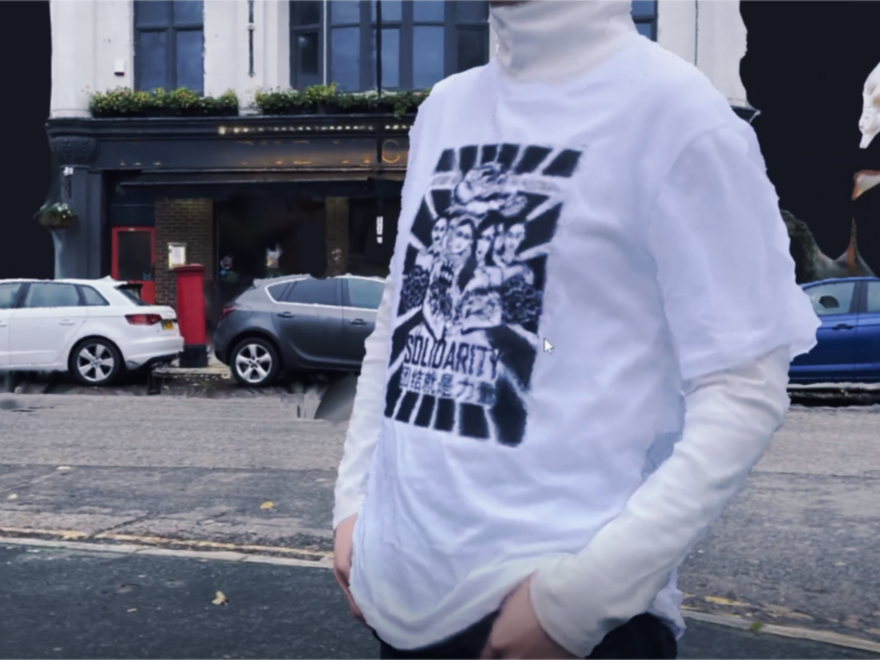
The CPSS screen-printed T-shirt designed by Caspar Zhang is seen on the streets of London
Can you tell me about some of the projects that have come out of CPSS studio?
We organised several online conversations with local residents in Palestine to better understand the real-life challenges they face and how they resist them. At the RCA, we also initiated three “Support Palestine” banner workshops, collaborating with young Chinese artists to design banners and posters on various themes. These works were later exhibited in public spaces across cities including London, Edinburgh, Paris, Singapore, Changsha, and Sebastia in Palestine. We also documented and shared these projects on our website and Chinese social media platforms, aiming to raise greater public awareness about the situation in Palestine and encourage more support from Chinese audiences.
You graduated from the RCA in 2023, what have you been working on since then?
After graduating, I returned to China and took up a teaching position at a university, where I currently lecture on courses related to urban space and also serve as the associate director of the programme. At the same time, I’ve been connecting with a Palestinian colleague who is studying in China, with plans to join his non-profit initiative and continue fostering cultural and social exchange between China and Palestine.
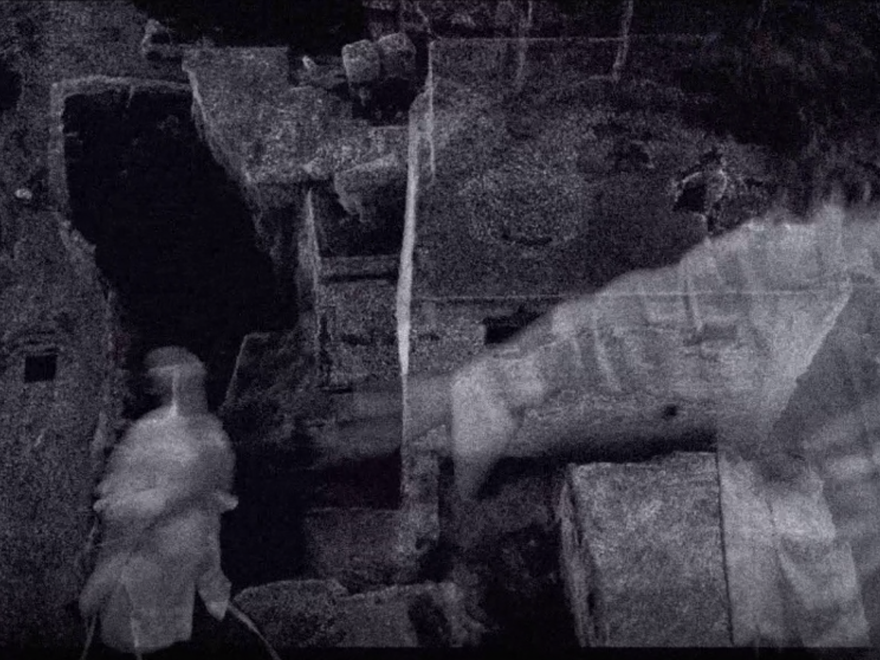
"An experimental film image that breaks through the distance limitation, where I placed myself on a building in Palestine and performed dance moves." - Caspar Zhang
When you look back at your time at the RCA is there a particular moment that stands out for you?
Every moment at the RCA was unforgettable. Whether it was conversations with Dima and Charlotte, each of them offered me tremendous support and guidance throughout my studies. It was these small but meaningful moments that came together to shape a rich and unique learning journey.
How did studying at the RCA help to set you up for success on this career path?
Studying at the RCA completely reshaped how I think about cities and society. The critical perspective and hands-on approach I developed there continue to guide my research, teaching, and social practice today.
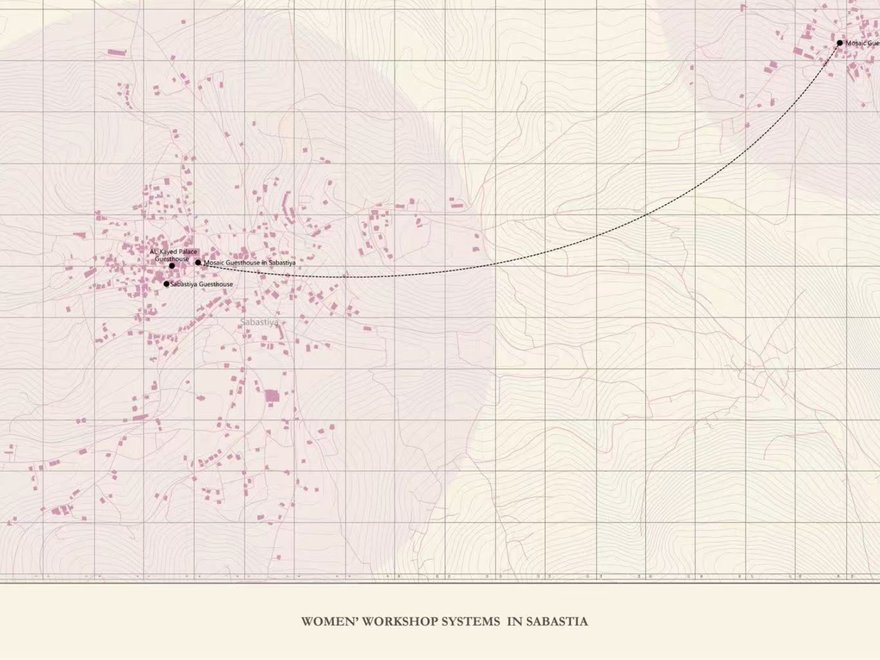
"The network diagram of women's organisations in Sebastia that I studied." - Caspar Zhang
